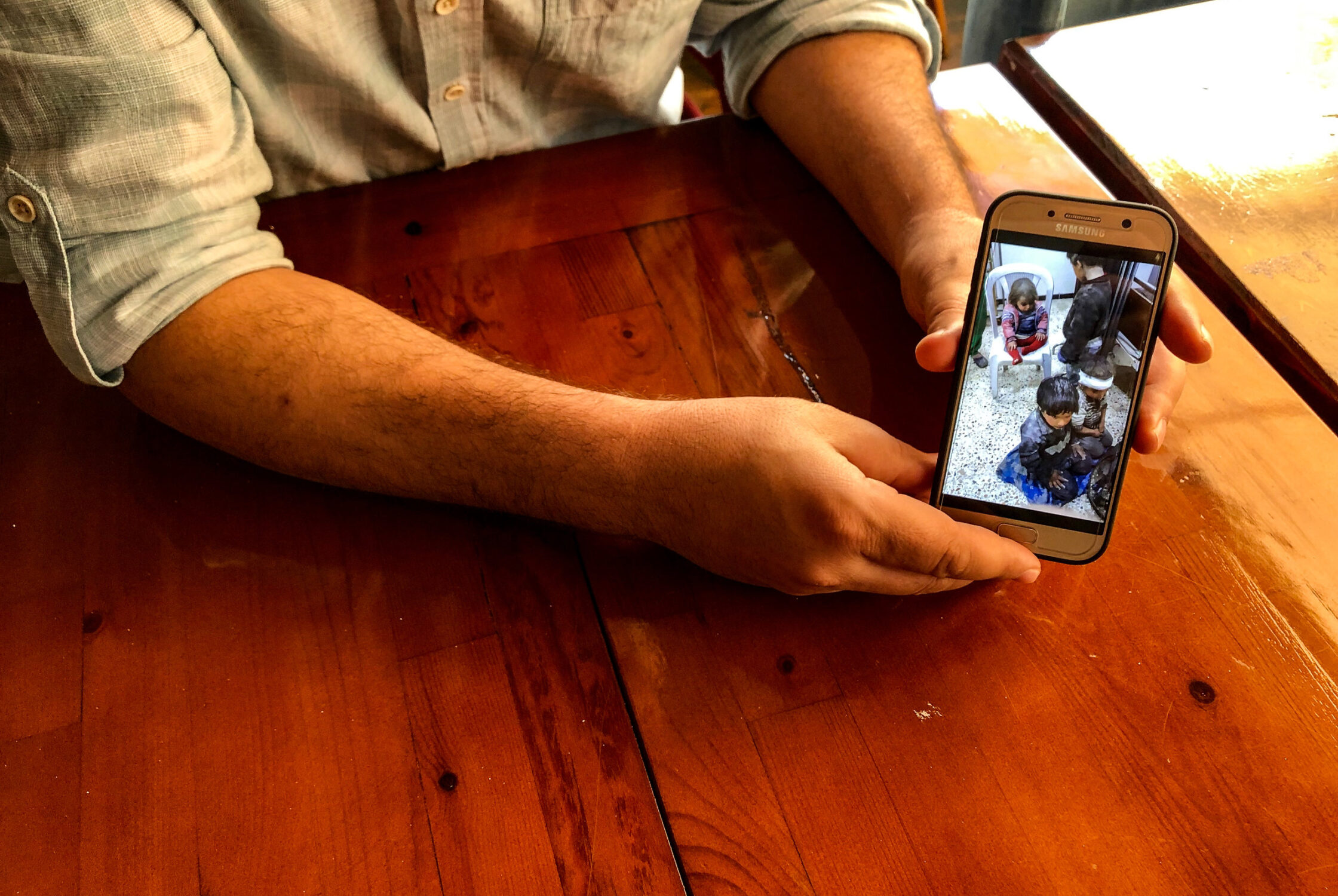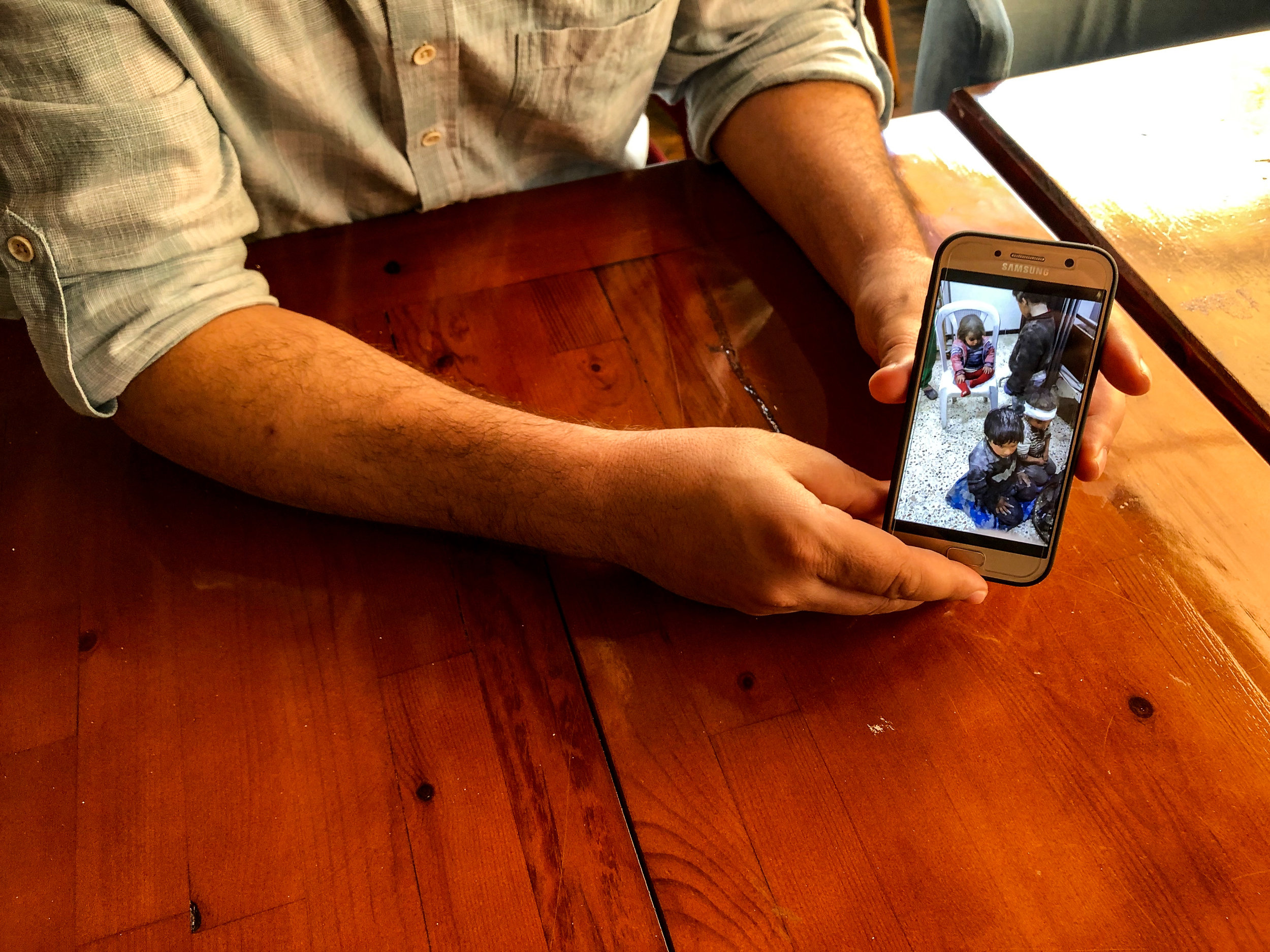Syrian Refugee Doctor on Treating War Wounded in Idlib

Syria’s Idlib province, one of the last opposition-held areas in the country after more than eight years of brutal civil war, is under attack. As the Syrian regime and its Russian allies step up a military campaign to retake the territory, hospitals and medical workers have been among the area’s hardest hit. Russian and regime airstrikes have damaged or destroyed at least 29 hospitals in the last few weeks, forcing many clinics to move into basements, shift to emergency-only services, or close their doors entirely.
Doctors in Idlib are working for days on end without breaks—some without pay. Primary health care services, maternity care, dialysis, nutrition, and other non-emergency forms of care are critically under-resourced, leaving the civilian population reeling.
To learn more about the realities of working as a medical professional under regime bombardment, Refugees International spoke with Dr. Khalid,* a Syrian doctor living as a refugee in Turkey. He’s been coordinating cross-border, life-saving medical relief in Idlib.
The Syrian government has deliberately debilitated health systems in opposition-held territories throughout the war. Risks are enormous for hospital staff, patients, and even locals.
“For the local population, having a hospital around them is even more dangerous than living near a military base,” he said. “In many areas people have refused to have hospitals built around them because they’re scared of being targeted.”
“In many areas people have refused to have hospitals built around them because they’re scared of being targeted.”
Dr. Khalid began his career as an ear, nose, throat (ENT) doctor, practicing medicine in his hometown in Eastern Ghouta. He graduated from medical school in 2011 and was working in a clinic and in his own practice when the uprising began. Things seemed hopeful at first. But at one Friday prayer, an imam warned worshippers that if they rebelled, the Assad regime would crush them. Instead of deterring them, more people joined the uprising, Dr. Khalid said.
But the regime’s response to the uprising was indeed swift and brutal, and Dr. Khalid soon shuttered his practice to treat the wounded amid the relentless bombing. Then, in August 2013, the Syrian regime used sarin gas to kill more than 1,000 people and injure many more in Eastern and Western Ghouta outside of Damascus.

“The revolution ended in 2013 when the regime used chemical weapons,” he said. “I helped about 1,000 patients, 117 of whom died—most of them women and children. I knew the regime won at that time because they did this and the international community didn’t do anything. That’s when it changed from a revolution to war.”
For nearly five more years, he remained in besieged Eastern Ghouta, working day and night to treat injuries and triage amid the bloodshed. “I thought of quitting and had even signed a contract to leave and work in Kuwait, but there were only two other doctors in my hometown with 40,000 people. I couldn’t leave the people.”
Dr. Khalid and his family were evacuated from Eastern Ghouta last year when the regime retook the area. The doctor and his family are now living in refuge in southern Turkey. He regularly travels back to Idlib to help coordinate the medical response amid the escalation there.
“There were only two other doctors in my hometown with 40,000 people. I couldn’t leave the people.”
The violence, mainly focused in Idlib’s south, as well as northern Hama and western Aleppo, has displaced more than 400,000 people to areas in the north of the province. Some are living without shelter or basic services. Health care needs are enormous. Over 540 people have been killed in the last few weeks alone. Thousands more have been injured.
“We are preparing our facilities for trauma and war injuries, and we’re moving primary care clinics up to the north for the displaced,” he explained. “We have evacuated hospitals in areas that have been totally abandoned by people because of the shelling… with all of the materials we can bring in trucks. When we can, we move everything—drugs, neonatal clinics, incubators, etc.”
The work comes at a great risk for everyone involved, including the doctors themselves.
“They’re thinking of where they can go, how they can move their families and where, and what options they have. That has affected their ability to do their job. There’s so much pressure on their work.”
Without a political solution to the conflict and an immediate end to hostilities, the current situation may only be a preview of what is to come. As Mark Cutts, UN deputy regional humanitarian coordinator, said on Tuesday after one of the deadliest weeks since the escalation began, “The nightmare in Idlib is getting worse.”
And indeed, Dr. Khalid and his staff are bracing for the worst. Based on his experience treating victims of chemical weapons attacks in Eastern Ghouta, he is making sure his facilities are ready for something similar in Idlib as the fighting intensifies.
“We fear that the regime is going to use chemical weapons, so I recently went to check that the hospitals were ready to take this on. The chance of the regime using chemical weapons is increasing because they’re not getting what they want.”
Despite it all, Dr. Khalid says he is trying to keep his staff motivated.
“I always tell people that there could be a solution on the horizon. We don’t have any other choice, we just have to support them. We have to try to motivate them.”
The world cannot turn its back on Idlib, Dr. Khalid, and his team.
*Refugees International is using a pseudonym to protect the doctor’s identity.